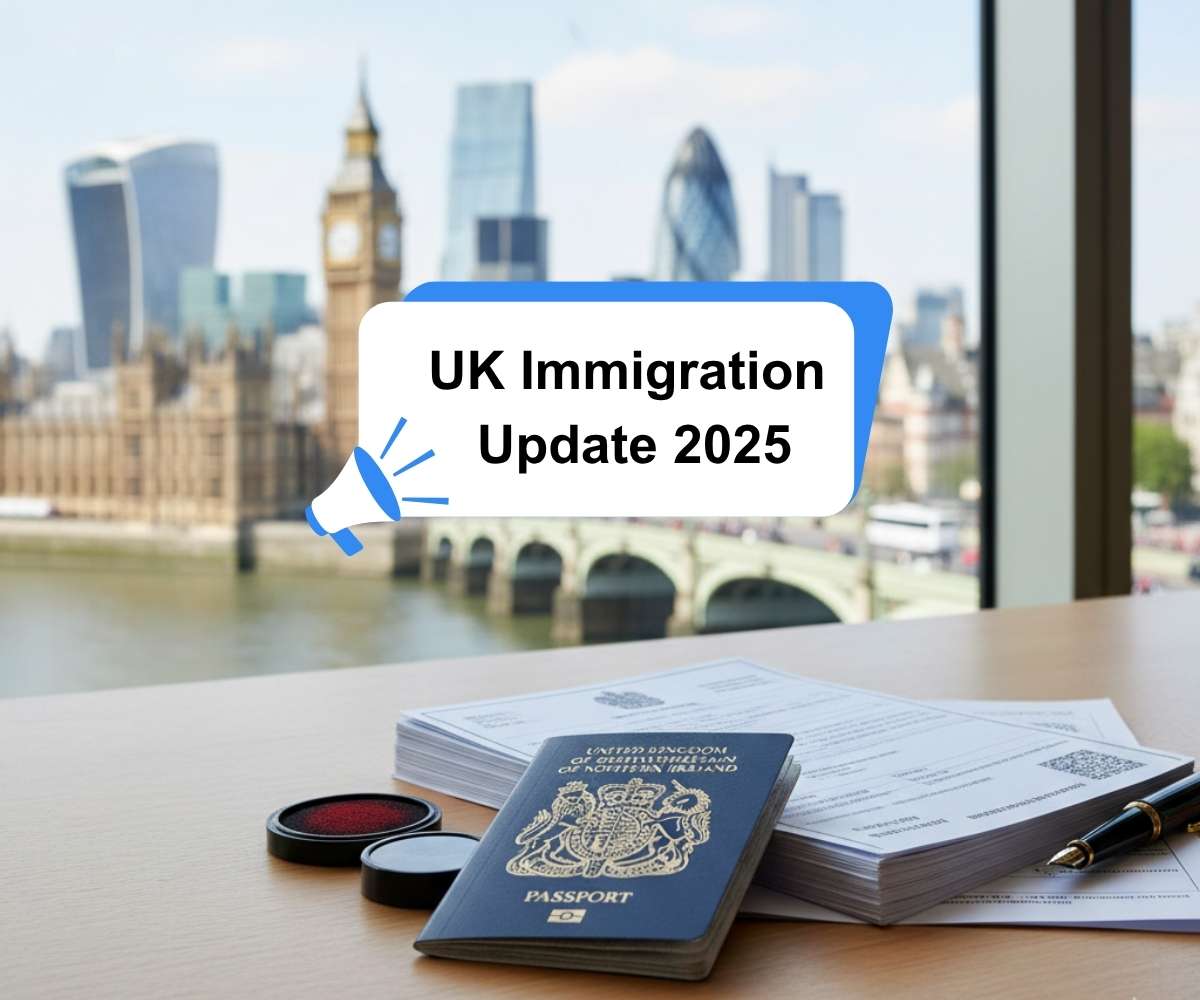The United Kingdom has announced a major update to its immigration rules by raising the English-language requirement for many visa categories. This change is part of the government’s long-term plan to strengthen integration, improve workplace communication, and ensure that newcomers can participate more effectively in UK society. While the policy is aimed at improving outcomes, it also creates new challenges for applicants who are planning to work, study, or settle in the country.
What Has Changed?
Until now, many UK visa categories — especially work-related routes — accepted English proficiency at the B1 level. Under the new rules, the required level will increase to B2 for a significant number of applicants. This means that applicants will need stronger listening, speaking, reading, and writing skills than before.
In addition to main applicants, adult dependants will now also face English requirements. Those joining family members in the UK will be required to show a basic level of English at the time of entry, and gradually meet higher standards when extending their visa or applying for settlement.
What Is the Difference Between B1 and B2?
To understand the impact, it helps to break down the language levels:
| Level | Meaning | Skill Expectation |
|---|---|---|
| B1 – Intermediate | Can handle everyday communication and familiar topics | Suitable for basic work and social situations |
| B2 – Upper-Intermediate | Can understand complex ideas and interact fluently | Suitable for professional environments and deeper communication |
The jump from B1 to B2 is significant. A B2 speaker must be able to express opinions, explain ideas clearly, interact confidently with native speakers, and understand more advanced language in the workplace.
Who Will Be Affected?
The new English-language rules will apply to:
-
Skilled Worker Visa applicants
-
Other professional or work-based visa routes
-
Adult dependants of workers and students
-
Applicants aiming for long-term residence or settlement
Anyone planning a UK immigration pathway that leads to employment or permanent settlement should be prepared for a higher language standard.
Implications for Applicants & Employers
This policy shift has direct consequences for both migrants and UK employers.
For Applicants:
Immigrants will need more preparation before applying, as the bar for acceptable English has been raised. Some candidates may need additional language training or may have to sit for their exams multiple times. The process might become more time-consuming and costly, but meeting the standard will improve communication confidence and workplace readiness once in the UK.
For Employers:
UK companies hiring from abroad must now ensure that international candidates meet the new language criteria before sponsorship. While this adds an extra layer of screening, it also ensures that future employees will require less language support and will integrate more smoothly into professional environments. Employers may face a slightly reduced talent pool but potentially gain stronger long-term hires with better communication skills.
Why Is the UK Making This Change?
The UK government says the higher English requirement is intended to:
-
Support better integration into British society
-
Improve communication in the workplace
-
Reduce pressure on public services
-
Encourage migrants who are ready for long-term contribution and settlement
In short, the government wants newcomers who can adapt quickly, work confidently, and fully participate in community life.
What Does This Mean for Applicants?
For many people, this change means extra preparation and planning. Meeting the B2 requirement may require:
-
More intensive English study
-
Longer preparation time before applying
-
Additional test attempts if a first attempt falls short
Applicants will need to prove their English level through an approved test or an accepted educational qualification taught in English.
If you plan to bring your family, remember that adult dependants will also need to prepare, which may affect your application timeline.
Tips for Future UK Visa Applicants
If you are planning to apply under a UK work or settlement route, here are some smart steps to take now:
-
Assess your current English level — Find out whether you are closer to B1 or B2.
-
Start improving early — Don’t wait until the application stage to begin preparing.
-
Practice all four skills — Focus on speaking and writing, as these are where most applicants struggle.
-
Plan for dependants — If you are bringing a spouse or adult family member, ensure they begin learning early.
-
Apply sooner if eligible — If you meet current rules, consider whether early application benefits you before the changes take effect.
Conclusion
The UK’s move to raise English-language requirements marks a major shift in its immigration system. While it raises the bar for applicants, it also reflects the country’s expectation that migrants will contribute actively to society and the workplace. With proper preparation and early planning, applicants can still achieve their UK goals — but waiting until the last moment could lead to delays, setbacks, or missed opportunities.
If you or your dependants are planning to apply for a UK visa, now is the time to prepare, improve your English skills, and review your application strategy. A well-planned approach today will save time, stress, and cost in the future.



